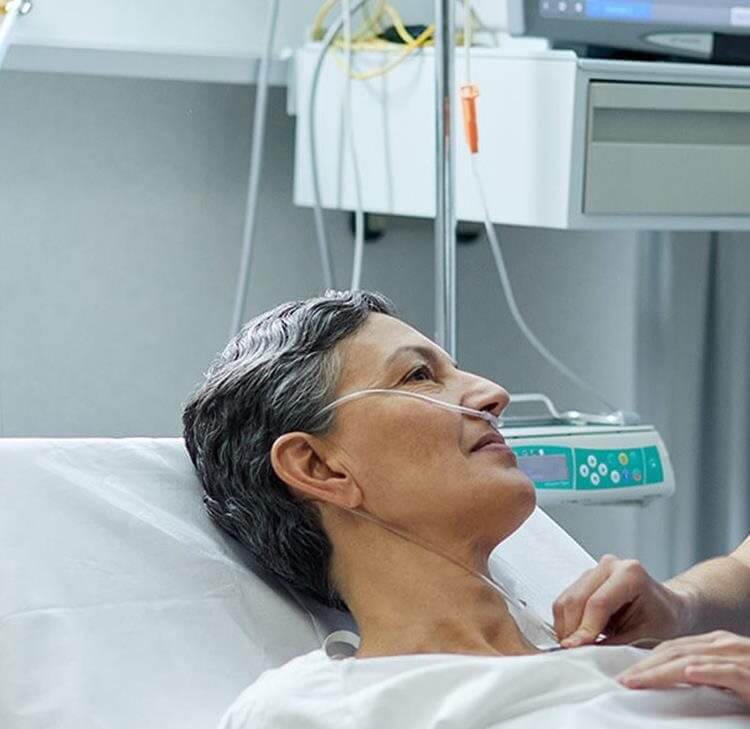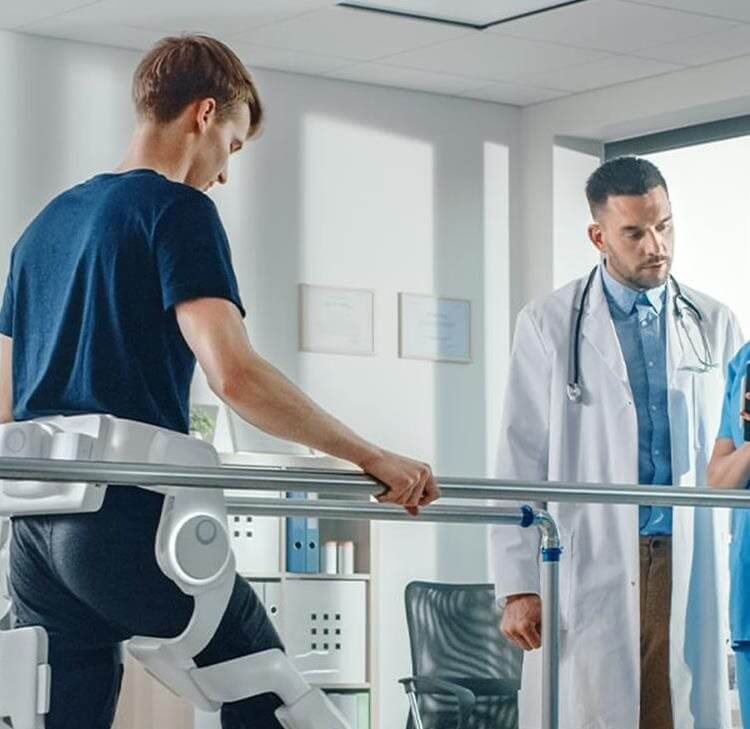On 9 September 2024, the statutory medical examiner system and the related death certification reforms were implemented. In short, the reforms mean that, from 9 September 2024, all deaths in England and Wales must be independently reviewed by either a coroner or a medical examiner.
The new system ensures that:
- Where a death is natural and did not occur in custody or state detention, it will be reviewed by a medical examiner.
- Where section 1 of the Coroners and Justice Act 2009 (CJA) is engaged, the death will be reviewed by a coroner. Section 1 of the CJA will be engaged where the coroner has reason to suspect that:
(a) the deceased died a violent or unnatural death,
(b) the cause of death is unknown, or
(c) the deceased died while in custody or otherwise in state detention.
In this article, we explore the new statutory system and explain what it means for the health and social care sector.
Background
The national medical examiner system was introduced in England and Wales on a non-statutory basis in 2019. Medical examiners are senior medical doctors who provide independent scrutiny of the causes of death in cases not investigated by the coroner. This ensures greater safeguards for the public and improves the quality of death certification and mortality data. Medical examiners also give the bereaved a voice by asking them whether they have any questions or concerns about the care of a patient before they died.
The medical examiner system was initially implemented in acute trusts, before being extended in 2021 to all other healthcare settings, including specialist, mental health and community trusts and GP practices.
On 9 September 2024, Medical Examiner Regulations came into force, meaning it is now a statutory (legal) requirement in England and Wales for all deaths that are not investigated by a coroner to be reviewed by a medical examiner before the death can be registered.
What are medical examiners required to do?
The Regulations require medical examiners to:
- Provide independent scrutiny of the causes of death, in line with statute and the new National Medical Examiner’s guidance for England and Wales. This means they must carry out a proportionate review of relevant records, which could include medical and social care records.
- Make whatever enquiries appear to be necessary to confirm or establish the cause of death, including liaising with practitioners and the bereaved family.
- Send completed medical certificates of cause of death (MCCD) to register offices, once the cause of death has been established.
- Refer any cases where there are concerns identified about the care provided. The new Medical Examiner’s guidance makes it clear that it is not the medical examiner’s role to investigate concerns in any depth, but rather concerns should be referred to the appropriate quality lead at the relevant organisation:
- For primary care, appropriate contacts are likely to be the GP practice manager or nominated GP clinical governance lead. In some cases, local and national guidance will also require notification of the commissioning body’s senior clinical governance or quality lead (or equivalent) at the ICB in England, and in Wales the health board medical director and/or relevant assistant medical director.
- For all other healthcare providers, including of NHS secondary and tertiary care, the senior quality lead should be notified of any concerns, e.g. director of nursing, medical director or patient safety lead.
- Concerns about local authority services (such as social care provision) should be referred to the local authority safeguarding lead.
- In rare but serious cases, where there may be reason to suspect professional misconduct or criminal activity, the coroner or police may also need to be informed.
How will healthcare providers be affected?
The statutory medical examiner system was announced by the government in April 2024. At that time, all healthcare providers in England and Wales, including GP practices and independent healthcare providers, were directed to set up processes to start informing medical examiners of non-coronial deaths and to share medical records of deceased patients in a timely manner.
ICBs in England were advised to contact all healthcare providers in their area and require them to establish processes to refer relevant deaths to medical examiner offices for independent scrutiny. Health Boards in Wales were directed to undertake similar action with healthcare providers in their area. The bulk of the work in preparing for the implementation of the new system should therefore have already been completed.
However, some key points that healthcare providers need to be aware of are as follows:
- A new MCCD has now been introduced and is being sent out to organisations by the Department of Health and Social Care.
- From 9 September 2024, medical practitioners will be able to complete a MCCD if they attended the deceased in their lifetime. This represents a simplification of the previous rules, which required referral of a case to a coroner for review if the medical practitioner had not seen the patient within the 28 days prior to death or had not seen in person the patient after death. Updated guidance for medical practitioners on completing MCCDs can be found here.
- From 9 September 2024, the Access to Health Records Act 1990 gives medical examiners a specific statutory right of access to records of deceased patients that they consider relevant when carrying out their duties.
- The Medical Certificate of Cause of Death Regulations 2024 require medical examiners to make whatever enquiries appear to be necessary to confirm or establish the cause of death. If records of a deceased patient are not made available and the medical examiner is unable to establish the cause of death, they are obliged to notify the death to the coroner.
- Healthcare providers should consider whether their data sharing arrangements support medical examiner requirements appropriately, and ensure electronic patient records are shared rapidly with medical examiners to avoid unnecessary distress and delay to bereaved people.
- In some neonatal cases, medical examiners may consider that the maternal patient records are relevant. Unless the mother is also deceased and her death is undergoing scrutiny by the same medical examiner, the specific right of access to these records under the Access to Health Records Act 1990 would not apply. If this is not the case, the usual information governance principles for living patients would apply to access to the maternal patient record (for example, obtaining consent from the mother or establishing another legal basis).
For clarity, the Notification of Death Regulations 2019 remain in place, meaning attending practitioners are to continue to notify deaths that fall within the regulation criteria directly to the coroner, who will remain responsible to take appropriate further action. Where an attending practitioner notifies a coroner of a death directly, there will be no regulatory requirement for the attending practitioner to tell the medical examiner they have done this.
How will social care be affected?
The medical examiner system supplements the coronial inquest system, increasing scrutiny in relation to deaths which do not meet the threshold for an inquest. This is likely to lead to social care organisations having increased contact with medical examiners.
Organisations should therefore consider a strategy for engagement and information exchange. This may include contact arrangements and protocols for referrals, that will help support rapid and appropriate sharing of information. It may also include a proactive engagement strategy with a lead examiner to understand (without personal data) the health outcomes, concerns and opportunities for improvement in their area and thus broaden understanding of the role of social care.
Some key points that social care providers need to be aware of are as follows:
- The National Medical Examiner’s guidance requires medical examiners to refer concerns about quality of care to appropriate individuals (typically a quality or safeguarding lead) at external organisations. It is then the responsibility of that individual or organisation to take appropriate action. Should medical examiners consider previous referrals have not resolved the concerns then they may conclude further referrals are appropriate. The guidance also identifies that there may be opportunities to share recommendations for improvement, even where concerns about care do not arise, and supports appropriate sharing of such recommendations in order to improve service user experience.
- The Access to Health Records Act 1990, as referenced above, will now give medical examiners a statutory right to access social care records. Organisations should ensure they are ready to respond promptly and appropriately to such requests to avoid causing delay for the bereaved or necessitating a referral to the coroner.
It will be good practice to ensure that staff who may deal with bereaved relatives of service users have knowledge of the medical examiner process, so as to be able to prepare and support these individuals. The role of the medical examiner includes engagement with bereaved relatives and, if well managed, the process offers organisations a route for bereaved individuals to access medical expert insight and answers which care staff may be less able to deliver. This should be seen as complimentary to an organisation’s own support and engagement.
If you have any questions about the new medical examiner system, please don’t hesitate to get in touch – we would be happy to help.
Key contacts

Samantha Paxman
Barrister (Partner)

James Arrowsmith
Partner

Nicola Evans
Partner
Author

Katie Viggers
Professional Development Lawyer
katie.viggers@brownejacobson.com
+44 (0)330 045 2157









































